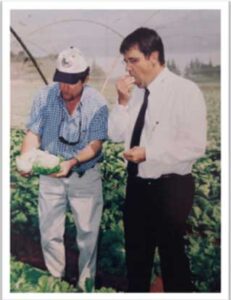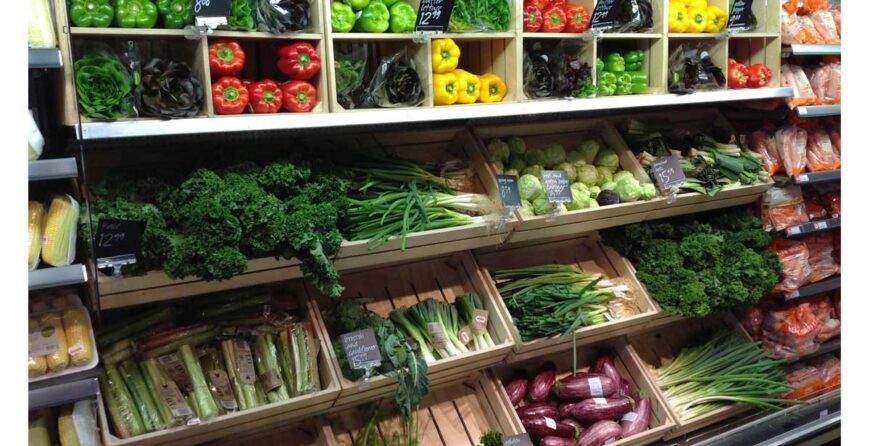GILI FAFCo
Gili FaFCo introduced new varieties of vegetables crops with different attributes and quality. Since, early days Gil has been an advocate of Soil health. He introduced special soil amendments like the special potassium nitrate extracted from the Dead Sea in IsraelBringing soil feeding new technology from dead sea in Israel.

GILI GREENWORLD
In 1996, Gili Greenwood was started in 300 ha for producing high quality vegetables and other produce for Pick ‘n Pay and other retailers.

Pick n Pay CEO getting a lesson on fresh produce and quality at the farm.

In 2004, before Christmas and in 2005, before Easter there were two major hailstorms in the area destroying the crop of 700,000 Lettuce heads, and hectares of Cucumber, eggplants, etc. That scale of destruction can before Christmas 2004 and the next production before Easter 2005 forced the farm to take into account the Climate change effects.







